Best PHP Programming Guides to Buy in October 2025
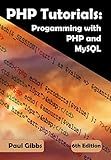
PHP Tutorials: Programming with PHP and MySQL: Learn PHP 7 / 8 with MySQL Databases for the Web


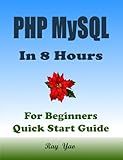
PHP MYSQL Programming, For Beginners, Quick Start Guide!: PHP MYSQL Language Crash Course Tutorial (Paperbacks in 8 Hours)


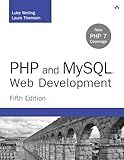
PHP and MySQL Web Development (Developer's Library)


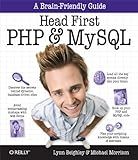
Head First PHP & MySQL: A Brain-Friendly Guide


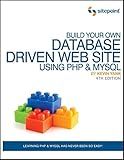
Build Your Own Database Driven Web Site Using PHP & MySQL
- AFFORDABLE ALTERNATIVE TO NEW BOOKS, SAVING CUSTOMERS MONEY.
- QUALITY ASSURANCE ENSURES A RELIABLE READING EXPERIENCE.
- ECO-FRIENDLY CHOICE PROMOTES SUSTAINABILITY THROUGH REUSE.


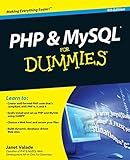
PHP & MySQL For Dummies, 4th Edition


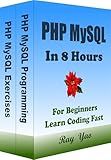
PHP MySQL: PHP MySQL Programming, In 8 Hours, For Beginners, Crash Course Textbook: PHP MySQL Language, Learn Coding Fast & Exercises



The Essential Guide to Dreamweaver CS3 with CSS, Ajax, and PHP (Friends of Ed Adobe Learning Library)



PHP for the Web: Visual QuickStart Guide



NGINX HTTP Server: Harness the power of NGINX with a series of detailed tutorials and real-life examples


In PHP, you can declare a variable by using the $ symbol followed by the variable name. Variable names in PHP start with a letter or underscore, followed by any combination of letters, numbers, or underscores. PHP variables are case-sensitive, meaning that $name and $Name are treated as two separate variables.
To declare a variable in PHP, you can use the following syntax:
$variableName;
You can also assign a value to the variable during declaration:
$variableName = value;
For example:
$name = "John"; $age = 25;
PHP is a dynamically typed language, which means you do not need to explicitly specify the variable type during declaration. The data type of the variable is automatically determined based on the value assigned to it. For instance, if you assign a string to a variable, PHP will recognize it as a string variable.
It's worth mentioning that PHP uses a loosely typed approach, allowing you to change the value and data type of a variable during runtime.
How to concatenate variables in PHP?
In PHP, you can concatenate variables using the . (dot) operator or the .= (dot equals) assignment operator. Here's an example of each:
Using the dot operator:
$variable1 = "Hello"; $variable2 = "world"; $concatenated = $variable1 . " " . $variable2; echo $concatenated; // Output: Hello world
Using the dot equals operator:
$variable1 = "Hello"; $variable2 = "world"; $variable1 .= " " . $variable2; echo $variable1; // Output: Hello world
Both methods will concatenate the values together and output the resulting string.
How to escape special characters within a PHP variable?
To escape special characters within a PHP variable, you can use a function called htmlspecialchars() or htmlentities(). These functions convert special characters to their corresponding HTML entities.
Here is an example of using htmlspecialchars():
$var = "alert('Hello!');"; $escapedVar = htmlspecialchars($var);
echo $escapedVar; // Output: <script>alert('Hello!');</script>
In the above example, the special characters <, >, ', and " are converted to their corresponding HTML entities <, >, ', and " respectively.
Alternatively, you can use the htmlentities() function:
$var = "alert('Hello!');"; $escapedVar = htmlentities($var);
echo $escapedVar; // Output: <script>alert('Hello!');</script>
Both functions ensure that special characters are properly escaped and displayed as literal characters within HTML output.
What is the purpose of using the "$" symbol before variable names in PHP?
In PHP, the $ symbol is used as a prefix before variable names to indicate that it is a variable. This helps distinguish variables from other elements within the code, such as functions or constants.
For example, consider the following code:
$age = 25; $name = "John";
echo "My name is $name and I am $age years old.";
In the above example, $age and $name are variables, and the $ symbol is used to indicate that they hold values. Without the $ symbol, PHP would interpret $age and $name as regular strings and not variables, resulting in an error or unexpected output.
By using the $ symbol before variable names, it becomes easier to identify and work with variables in PHP code.
What is the effect of variable scoping in PHP loops?
Variable scoping in PHP loops can have different effects depending on the type of loop used and how variables are defined and accessed.
- For loop: Variables defined inside a for loop are scoped only within the loop itself. They are not accessible outside the loop once it finishes executing. Variables defined outside the for loop can be accessed and modified inside the loop, but any changes made to the variables inside the loop will persist outside the loop.
- While loop: Similar to the for loop, variables defined inside a while loop are scoped only within the loop. They are not accessible outside the loop once it finishes executing. Variables defined outside the while loop can be accessed and modified inside the loop, and any changes made to the variables inside the loop will persist outside the loop.
- Foreach loop: Variables defined in a foreach loop are scoped only within the loop itself. They are not accessible outside the loop once it finishes executing. Unlike for and while loops, the iteration variable or key-value pair (depending on the array being iterated) is bound to the original array. So changes made to the iteration variable or key-value pair inside the loop do not affect the original array.
In summary, variable scoping in PHP loops determines the visibility and accessibility of variables inside and outside the loop, as well as the persistence of changes made to those variables.
How to declare a variable in PHP?
In PHP, there are two ways to declare a variable:
- Using the $ symbol followed by the variable name:
$variableName;
- Assigning a value to the variable at the time of declaration:
$variableName = value;
Here's an example of how to declare a variable in PHP:
$name; $age = 25;
In the example above, $name is declared without assigning a value, while $age is declared and assigned the value 25 at the same time.
